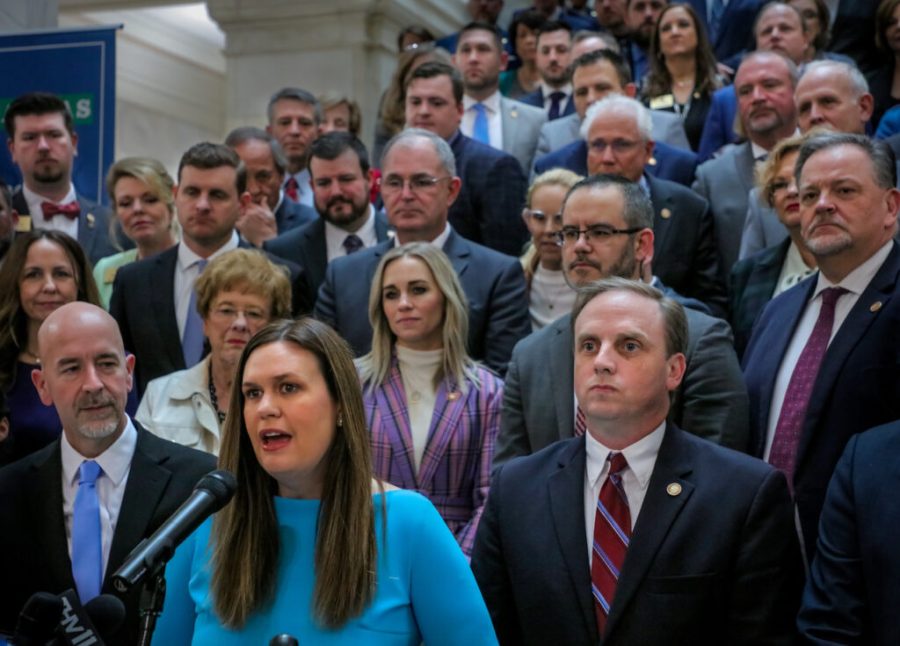Proposed voucher system disregards public school teachers
On Thursday, February 23, 2023, the Senate of the state of Arkansas passed the LEARNS Act, a 144 page bill that will revamp private and public schooling in Arkansas. The bill passed in a 48-hour span, giving the public very little time to discuss it. The bill retooled a wide range of debated topics on schooling, including the Fair Dismissal Act, teacher salaries, and vouchers, all of which are concerns of teachers Rachel Cockrell and Erin Jones.
A voucher is a set amount of government money given to a school per student. Previously, students who lived in a public school area and chose to go to a private school could not decide where this voucher went. However, the LEARNS act has written the universal school choice concept into Arkansas law. This means that families can direct their allotted money to any public school, private school, or homeschool of their choice, meaning that public schools could lose necessary funding to private schools that are already funded by tuition. Cockrell believes that this issue is certainly one to be concerned about.
“School vouchers might be the worst part of the act,” Cockrell said. “Not only is funding an issue, but the underlying assumption of school vouchers is that private schools are ‘better’ than public schools. That’s insulting. Private schools are not held to the same standards as public schools. They don’t have to do standardized tests or meet any of the other requirements that every other Arkansas school has to meet.”
Jones agrees that the voucher situation isn’t fair to public schools. Because of the act, Har-Ber could see a drop in literacy and math scores according to Cockrell. It is also possible that some extracurricular programs, such as journalism classes, art classes, music classes, and other “nonessential” electives, could be cut. Jones was also disturbed by how fast the bill came to fruition, and wishes she had a chance to speak out.
“I feel like the act is overly broad and vague in its terminology. There was little opportunity for public school teachers or the public in general to give feedback on such a huge overhaul,” Jones said. “Education has a ton of moving parts, and rushing a bill through committee in two days with only one minute time allotments for the public to speak in Little Rock is problematic for an issue of such complexity.”
However, Jones was able to attend an Arkansas Education Association meeting on Tuesday, February 21, 2023, and discuss the bill although she got many of the same responses.
“Our AEA (Arkansas Education Association) president reported that a senator from the committee stated that the Act would be voted in with a supermajority whether we wrote our emails, made phone calls, or protested,” Jones said. “It felt pretty bleak.”
Teacher salaries were also a component of the bill. The bill states that everyone will start with a base salary of $50,000. However, there is no room for pay raises based on work experience or level of degree, something that Cockrell is certainly concerned with.
“It’s an act that’s full of clear and not-so-subtle disdain for public schools, disguised as a teacher raise,” Cockrell said, “and it’s not as much of a raise as they want you to think when you read the fine print.”
Cockrell, like Jones, has reached out to members of the Arkansas legislature countless times through messages and letters. However, all of her messages have been ignored. She feels as though the way the government has handled the passing of this bill has been an insult to her and her fellow teachers.
“I put so much of myself into what I do,” Cockrell said, “and to see our elected officials treat public school teachers with such disrespect and such a clear lack of faith is hurtful.”
